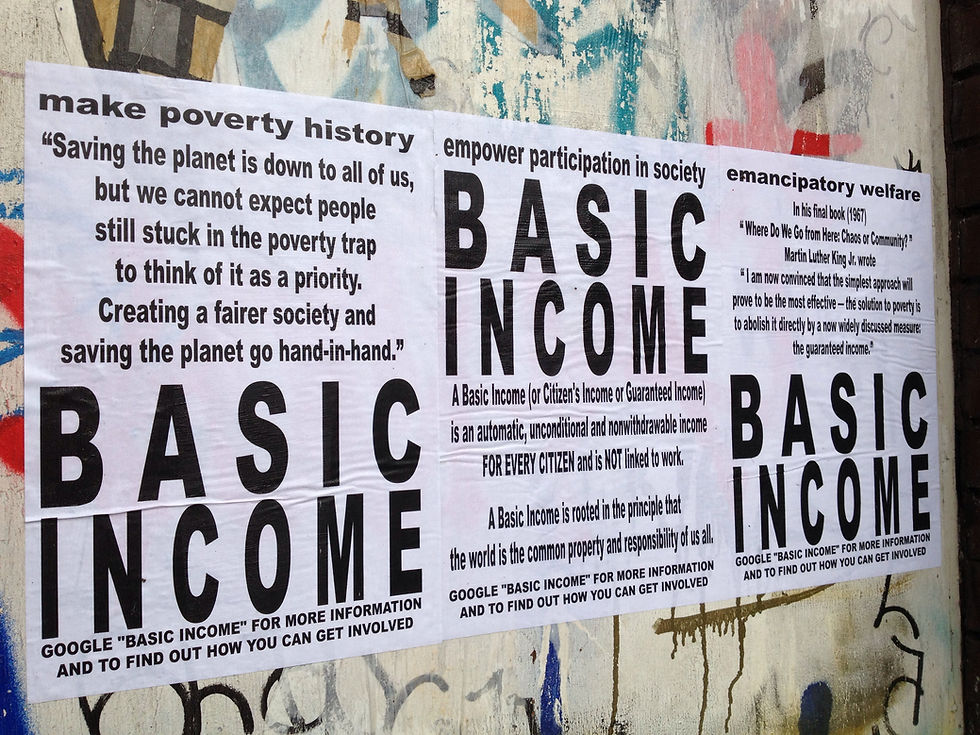Sarah Everard's Death Causes Outpouring of Grief in UK
- Anishkaa Worthington
- Mar 26, 2021
- 4 min read
Updated: Dec 23, 2024
On the 3rd of March, Sarah Everard left a friend’s house in Clapham Junction, and made her way to her home in Brixton. That journey was only supposed to take 50 minutes on foot; Ms. Everard chose to take a longer route home which was described as being “brightly-lit” and “well-walked” by residents in the area. She also spoke to her partner for 15 minutes during her journey, and they agreed to meet the next day. The next day, her partner reported her as a missing person when she did not show up to their meeting, and he was unable to contact her.
This led to six days of intense searching for Ms. Everard, as the Metropolitan Police opened an investigation into her disappearance, and her friends and family pleaded with the public to help them find her. Volunteers from London Search & Rescue also assisted the police, as teams were sent out to knock on doors, and search nearby water bodies. A major breakthrough in the case occurred when the police were made aware of CCTV footage from a doorbell camera, which showed Sarah passing by alone on Poynders Road, in the direction of Tulse Hill. More CCTV footage was obtained by the police from bus drivers’ dash cams, which supposedly directed investigating detectives to Kent.
On March 9th, Kent Police arrested Wayne Couzen at his address in Deal. At this point, he was suspected of kidnapping Ms. Everard. In a public statement to the media, Metropolitan Police Assistant Commissioner, Nick Ephgrave, confirmed that the suspect arrested was a serving Metropolitan police officer. A woman was also arrested at Couzen's property. Ephgrave described the development as “shocking and disturbing”, and recognised the significant concern that the police officer’s professional role would cause for the public. Couzen was assigned to the Parliamentary and Diplomatic Protection Command, and he was responsible for patrolling diplomatic premises, such as Downing Street and The Palace of Westminster. He was also questioned for a separate allegation of indecent exposure.
On March 10th, it was revealed that human remains had been discovered by the police during an extensive search in the woods in Ashford. It was announced in a televised update later that evening that the remains were those of Sarah Everard. The suspect was arrested again, and officially charged with kidnap and murder at Westminster Magistrate Court. He was remanded into custody, and appeared via a video link at the Old Bailey from Belmarsh Prison on March 16th. The plea hearing date has been set for 9th July 2021, and a provisional trial for 25th October 2021. The woman, who is in her 30s, has been released on bail until a date in mid-April 2021.
The UK has been mourning the tragic death of Sarah Everard, and women have been voicing their frustration about the normalised violence they experience on a daily basis. A common theme amongst the outpouring messages of sympathy and scrutiny was relatability; many girls and women relate to being hyper-conscious about their safety.
On March 11th, Lucy Mountain, a social media influencer, took to Instagram, and shared a picture of a text message which read: “Text me when you get home xx”. She explained that this text was one of the methods of self-policing that women take to protect themselves from violence, including sharing their locations, utilising keys as potential defensive weapons, strategizing escape routes, and even carrying pepper spray in certain cases. She also highlighted the normalcy of violence against women and girls, who are taught about these safety tools from a young age, and have been conditioned to believe that this is “just the way it is''. The post was shared over a million times, and opened the gate for many female social media users with whom the post resonated, and shared their stories of being followed, harassed, flashed, catcalled, and assaulted.
On March 13th, crowds gathered at a vigil held at Clapham Common to pay respect to Sarah Everard. The gathering was described as “emotional but calm”, as candles were lit and flowers were laid. However, the scene changed as night fell, and police presence led to conflict. Flowers were trampled by police officers as they tried to stop speakers who were leading chants. The officers reportedly formed a chain that forced members of the crowd to be pushed closer together, and threatened to arrest those who did not leave. A startling image of Patty Stevenson, a young woman with red hair, being roughly pinned down by two police officers, quickly circulated the internet. She was arrested, taken away in handcuffs, and then ordered to pay a fine. Several other videos of police shoving predominantly-female protesters aside have been shared online, and at least four people were arrested for public order and coronavirus regulation breaches.
Many were shocked at the sudden interruption of the peaceful vigil. This sparked more scrutiny towards the police, as activists had origin ally been told that the protest could go ahead, and many felt it was inappropriate to quell the vigil, given the identity of the alleged murder. Calls were made for Metropolitan Police Commissioner, Dame Cressida Dick. to resign from her position, as she defended the police's efforts to "control" the large crowd. The widespread criticism against the police comes at a critical point in British politics as the Police, Crime, Sentencing and Court Bill was recently voted through its second reading. Led by Home Secretary Priti Patel, the bill has been criticised, as it will provide the police with more discretionary powers to control protests, such as deciding start and finish times, and controlling noise levels.

_edited.png)




Comments